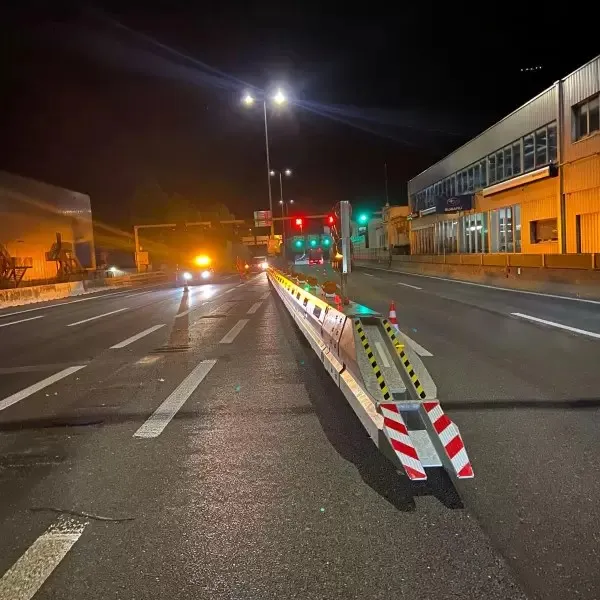The system meets crash test and evaluation criteria contained in the American Association of State Highway and Transportation Officials’ Manual for Assessing Safety Hardware (MASH).
MASH is the new standard for the crash-testing of safety devices for use on the National Highway System. It updates and replaces NCHRP Report 350.
“We are pleased to inform our existing customers that the NCHRP350 TL4 barrier they installed in recent years now has passed MASH TL3,” said Chris Sanders, senior vice president of Lindsay Transportation Solutions. “All CRTS barriers connect seamlessly, providing fully compatible systems and spare parts.”
The QMB-CRTS is a non-anchored, portable or temporary concrete barrier used in managed lanes and construction applications. The company said that it is the first and only MASH compliant moveable barrier system that uses a machine to create real-time roadway reconfiguration while maintaining positive barrier protections between lanes. The system completed two MASH Level 3 (TL3) crash tests conducted by an independent testing facility, which were submitted to the Federal Highway Administration for approval in December.
If installed under the range of tested conditions, QMB-CRTS is now eligible for reimbursement under the federal-aid highway programme.
Last October, Lindsay’s Road Zipper median barrier system won an award of merit from the San Francisco Metropolitan Transportation Commission for its performance on the Golden Gate Bridge. The moveable median barrier, completed in January 2015, has reduced head-on collisions on the 2.7km-long bridge that handles around 2.5 million vehicles per month.
The barrier is a mechanical “zipper” that changes the configuration of the bridge’s six lanes twice daily to keep traffic flowing smoothly.
Lindsay moveable barrier system earns MASH approval in the US
Lindsay Transportation Solutions has announced that its QuickChange Moveable Barrier Concrete Reactive Tension System (QMB-CRTS) has earned MASH approval. The system meets crash test and evaluation criteria contained in the American Association of State Highway and Transportation Officials’ Manual for Assessing Safety Hardware (MASH).
MASH is the new standard for the crash-testing of safety devices for use on the National Highway System. It updates and replaces NCHRP Report 350. “We are pleased to inform
May 14, 2018
Read time: 2 mins






